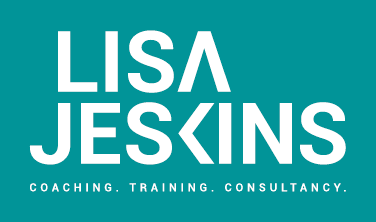I’ve decided to become a chartership mentor. (the title gave it away didn’t it?) I’ve been talking to a lot of people recently about mentoring. About having mentors and about being a mentee. About formal mentoring and informal mentoring and how much people have been getting out of this sort of professional relationship.
Helen Stein, Caroline Cooke and I were chatting on the train back into London after the IL day that CoFHE LASEC held. Caroline was incredibly enthusiastic about her experiences with mentoring and couldn’t recommend it highly enough – she’s a great advocate for the CILIP programme. I started to think that this was something I should do. The fact that I’d been asked to be someone’s mentor might possibly have helped to get the ball rolling. 😉
So I started to investigate what I had to do and discovered that we’d possibly started a little back to front.
Usually people decide they want to be a mentor, sign up for the Mentor training, DO the mentor training and then register with CILIP. Once they have been added to the CILIP mentor database – mentees are then free to choose you as their mentor if they feel you could be the right fit to mentor their chartership process.
So having already agreed to be a mentor, I found out that you can only be a mentor if you have gone through mentor training. (Emily Hopkins is the Candidate support for NW and Linda Ferguson is the NW support for mentors and they are incredibly helpful.) The programme is quite flexible and you can have done different mentor training other than CILIP’s. However, although I do a lot of informal mentoring at work, I’ve not had any formal training. So I signed up for the very next lot of training and filled out my registration form.
The following is a short review of the key elements of the training.
Mentoring training
I attended the CILIP’s PTEG Mentor Training run by Linda Ferguson and Emily Hopkins. It’s a good day and value for money too.
The morning session is about mentoring skills and the afternoon session explains more about the process and procedures that you have to go through with your mentee.
Parsloe and Clutterbuck are the key writers in the field. Parsloe states that mentoring is “to help and support people to manage their own learning in order to maximise their potential, develop their skills, improve their skills and become the person they want to be”.
CILIP list the key skills a mentor should have as ‘active listening, questioning and giving feedback’. We got the chance to put all of these skills into practice and I found the exercises very useful and liked the fact that we got a change to ‘have a go’.
Mentors are there to guide mentees in their professional development and help them to start ‘steering their own course’. You are also there to encourage them to reflect on what they are doing and on any training courses that they are attending.
Linda also underlined that whilst you would take the lead initially – the chartership process wasn’t about you, so you should not be the one doing the talking. (as a talker – I feel this is something I should particularly take onboard!) and that celebrating success is a crucial part of any mentoring process.
Linda also stressed that it’s important to get your mentee to think about their portfolio and evidence by thinking about questions and statements such as:
“I did this and it was important”, “What impact did it have?”, “Why is it important? So what?”, “Why is that bit more important than this bit?”
Key mentor qualities: a mentor shouldn’t be biased or judgemental – you are not there to criticise but to motivate and inspire.
Chartership assessment criteria (See Laura’s Dark Archive, on the road to chartership: http://darkarchive.wordpress.com/2011/05/20/on-the-road-to-chartership/)
- An ability to reflect critically on personal performance and to evaluate service performance
- Active commitment to continuing professional development
- An ability to analyse personal and professional development and progression with reference to experiential and developmental activities
- Breadth of professional knowledge and understanding of the wider professional context
Mentees need to demonstrate all four criteria!!
I thought it was interesting to note that Chartership assessors work in pairs. – if they decide to fail someone then the portfolio is given to a new pair of assessors to see if they agree.
The day was very practical and I found it useful to have the opportunity to practice some of the skills expected of me. I also appreciated the opportunity to have a look through some successful chartership portfolios.
Userful Chartership Links
Michael Martin is a CILIP Adviser from the Qualifications & Professional Development Department and has the following presentations online that will help mentors and mentees.
CILIP Mentor Scheme: http://www.cilip.org.uk/get-involved/ways-to-get-involved/qualifications-and-professional-development/mentor-scheme/pages/default.aspx
CILIP’s Five steps to chartership: http://www.cilip.org.uk/jobs-careers/qualifications/cilip-qualifications/chartership/pages/stepguidecharter.aspx
Laura’s Dark Archive: On the road to chartership
Parsloe: http://www.mentorset.org.uk/pages/mentoring.htm
Clutterbuck: Everyone needs a mentor, fostering talent in your organisation: http://www.cipd.co.uk/Bookstore/_catalogue/LearningAndDevelopment/1843980541.htm

Pingback: Mentor Training « PTEG